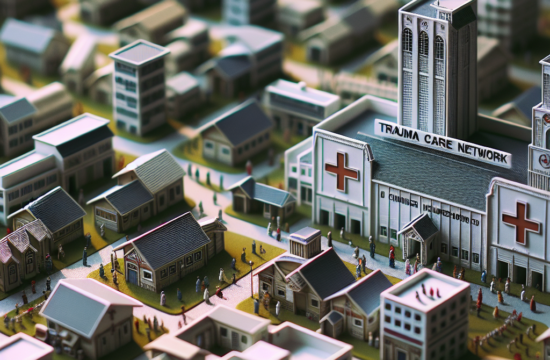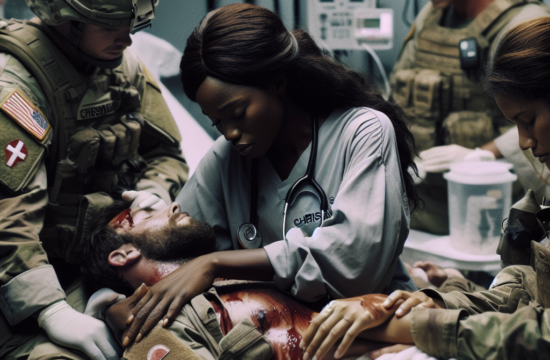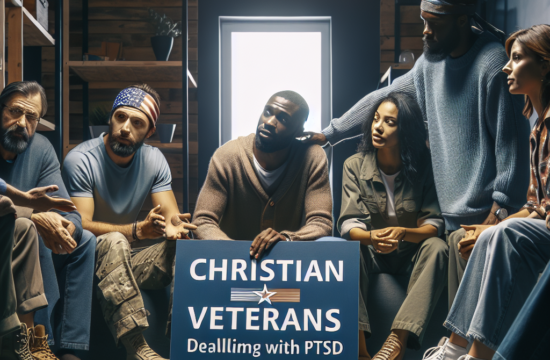Table of Contents
- Military Service Trauma
- Effects on Mental Health
- Family Relationships
- Recovery and Support
Military Service Trauma
Understanding the Nature of Military Trauma
Military trauma is a complex and multifaceted issue that affects soldiers in ways that are often not visible to the naked eye. The nature of military service inherently exposes personnel to situations of extreme stress and danger, making trauma a frequent byproduct. Whether it’s on the battlefield, during training exercises, or even in the confines of the barracks, trauma can strike unexpectedly.
==> Thank you for reading this post! Click Here If you are looking for support and Victory over PTSD.
From my personal experience, military trauma often arises from life-threatening encounters, witnessing the injury or death of comrades, and the moral dilemmas faced in combat. These traumatic events can have lasting psychological effects that extend far beyond the battlefield.
Additionally, it’s important to recognize that not all trauma is immediate; some service members may not exhibit symptoms until months or even years after their service. Understanding and acknowledging the depth and breadth of military trauma is the first step toward addressing it effectively.
Physical Manifestations of Trauma
While much of the focus tends to be on psychological impacts, military trauma also has physical manifestations. Service members might suffer from injuries such as traumatic brain injuries (TBI), chronic pain, and other physical conditions that can severely impact their daily lives.
I have seen firsthand how these physical ailments can compound the psychological trauma, creating a cyclical effect that’s hard to break. The chronic pain and discomfort can serve as a constant reminder of the traumatic event, making it harder for the individual to move on.
These physical challenges often necessitate ongoing medical care, rehabilitation, and sometimes, surgical interventions. Addressing the physical wounds is as critical as addressing the psychological scars to provide comprehensive care for our veterans.
The Stigma Surrounding Military Trauma
One of the biggest barriers to addressing military trauma is the stigma attached to it. In the military culture, there is often an unspoken expectation of stoicism and toughness. Admitting to experiencing trauma can be seen as a sign of weakness, which deters many from seeking the help they need.
Having been in those shoes, I can tell you that this stigma is incredibly damaging. It prevents open discussions and the sharing of experiences, leaving many to suffer in silence. The fear of being judged or seen as unfit can be overwhelming.
Breaking down this stigma requires cultural change within the military. Encouraging open dialogue, providing education on mental health, and ensuring that seeking help is seen as a strength rather than a weakness are essential steps in this process.
Effects on Mental Health
Post-Traumatic Stress Disorder (PTSD)
Probably one of the most well-known mental health issues arising from military trauma is Post-Traumatic Stress Disorder, or PTSD. PTSD can manifest through persistent nightmares, flashbacks, and severe anxiety, often disrupting the lives of those affected.
From my perspective, PTSD is not just about reliving the trauma; it significantly alters how one interacts with the world. Situations that are non-threatening to others may trigger intense fear or aggression in someone with PTSD, making everyday life challenging.
Effective treatment often involves a combination of medication, therapy, and support groups. However, the key is early intervention. The sooner PTSD is recognized and treated, the better the outcomes for the individual.
Depression and Anxiety
Apart from PTSD, depression and anxiety are other common mental health issues faced by military personnel. The weight of traumatic experiences can lead to deep, persistent feelings of sadness and hopelessness, characteristic of depression.
In my experience, anxiety often accompanies depression, with affected individuals experiencing heightened states of worry and stress. This can lead to panic attacks, insomnia, and difficulty in managing daily tasks.
Addressing these conditions requires a holistic approach that includes professional counseling, lifestyle changes, and a strong support system. It’s critical to create an environment where veterans feel understood and supported, reducing the feelings of isolation and helplessness.
Substance Abuse as a Coping Mechanism
Sadly, substance abuse is a common coping mechanism among those dealing with military trauma. Alcohol and drugs may offer temporary relief from the pain, but they often lead to further complications and dependencies.
I have met many veterans who turned to substances as a way to numb their emotions and escape their thoughts. Unfortunately, this can spiral into addiction, which brings its own set of challenges and further deteriorates mental health.
Combating substance abuse requires a multi-faceted approach that includes counseling, rehabilitation programs, and ongoing support. Helping veterans find healthier coping mechanisms and providing resources for addiction recovery are vital steps in their journey to healing.
Family Relationships
The Strain on Marriages
Military trauma doesn’t just affect the individual; it also has a profound impact on their family, particularly marriages. The stress and emotional turmoil that come with trauma can put a significant strain on relationships.
In my observations, communication often breaks down as a result of trauma. The affected individual may become withdrawn or irritable, which makes it difficult for their partner to provide the support that’s needed. This can lead to misunderstandings and resentment on both sides.
To strengthen these relationships, it’s essential for both partners to receive counseling and support. Open communication and understanding are key to navigating the challenges that trauma brings into a marriage.
Impact on Children
Children of military personnel are also significantly affected by their parent’s trauma. They might not fully understand what’s happening but will sense the changes in their parent’s behavior and the overall tension within the household.
It’s heartbreaking to see children dealing with the indirect effects of trauma, such as increased anxiety, behavioral issues, or difficulty in school. These little ones need support and reassurance to cope with the changes they observe.
Family therapy that includes children can be incredibly helpful. It provides them with a safe space to express their feelings and helps the family unit to heal together. Moreover, educational programs to help children understand what their parent is going through can make a significant difference.
Extended Family Dynamics
Trauma also extends its reach to the extended family, affecting parents, siblings, and other close relatives. They too can struggle with understanding and supporting their loved one who is dealing with military trauma.
From my own experiences, I know how difficult it can be for extended family members who may feel helpless or unsure how to assist. The ripple effect of trauma can cause additional stress and anxiety within the family network.
Providing resources and education to extended family members can help them understand the nature of military trauma and better support their loved ones. Involvement in support networks and counseling can also foster a stronger, more supportive family environment.
Recovery and Support
Accessing Professional Help
One of the first steps in recovery from military trauma is accessing professional help. This can involve therapy, counseling, and sometimes medication to address both psychological and physical symptoms.
In my travels, I have seen many veterans benefit immensely from Cognitive Behavioral Therapy (CBT) and other therapeutic approaches. Early intervention and regular sessions can make a significant difference in managing symptoms and improving quality of life.
It’s also crucial to find healthcare professionals who understand military trauma and have experience in treating it. Specialized programs and therapists can provide tailored care that addresses the unique challenges faced by service members and veterans.
Peer Support Networks
Peer support networks play a vital role in recovery. Connecting with others who have similar experiences can provide a sense of community and understanding that is incredibly healing.
Having been part of such networks, I can attest to the power of shared experiences. Veterans often find solace and strength in talking to peers who truly get it. These networks can offer emotional support, practical advice, and a sense of belonging.
Many organizations exist specifically to provide these peer support networks. Encouraging veterans to join such groups can be a crucial step in their healing process, helping them feel less isolated and more understood.
Building a Strong Support System
Beyond professional help and peer support, building a strong personal support system is essential for recovery. This includes family, friends, and community members who can provide day-to-day support and encouragement.
Friends and family can offer practical assistance and emotional support that make a huge difference. By creating an environment where the individual feels safe and supported, the path to recovery can be smoother.
Community involvement, whether through social activities, volunteer work, or support groups, also plays a critical role. Connecting with the broader community can help veterans rediscover their sense of purpose and belonging, which is vital for healing and rebuilding their lives.
FAQ
What is military service trauma?
Military service trauma refers to the psychological and physical injuries that service members can incur due to their military experiences. It often results from events such as combat, witnessing death or injury, or facing moral dilemmas.
How does military trauma affect mental health?
Military trauma can lead to a range of mental health issues, including PTSD, depression, and anxiety. These conditions can significantly disrupt an individual’s daily life, causing persistent fear, sadness, and emotional distress.
What impact does military trauma have on family relationships?
Military trauma can strain family relationships, affecting marriages, children, and extended family dynamics. The behavioral and emotional changes in the affected individual can lead to misunderstandings, increased stress, and emotional turmoil within the family unit.
What are the key components of recovery from military trauma?
Recovery from military trauma involves accessing professional help, participating in peer support networks, and building a strong personal support system. Comprehensive care that addresses both psychological and physical aspects is essential for effective healing.
Original Source











